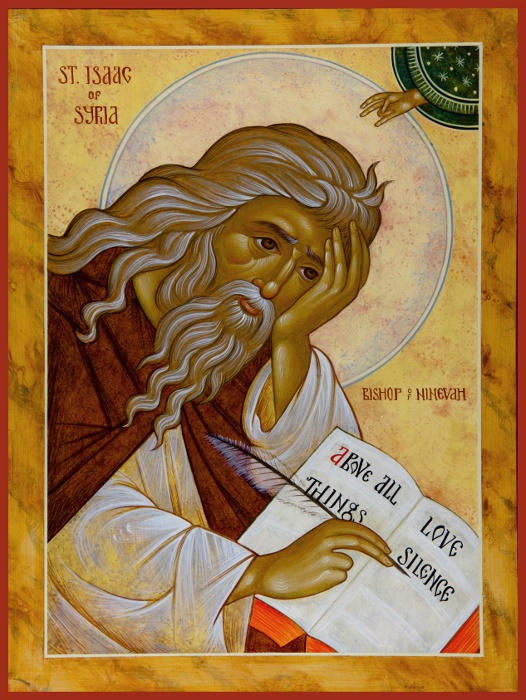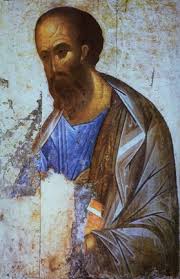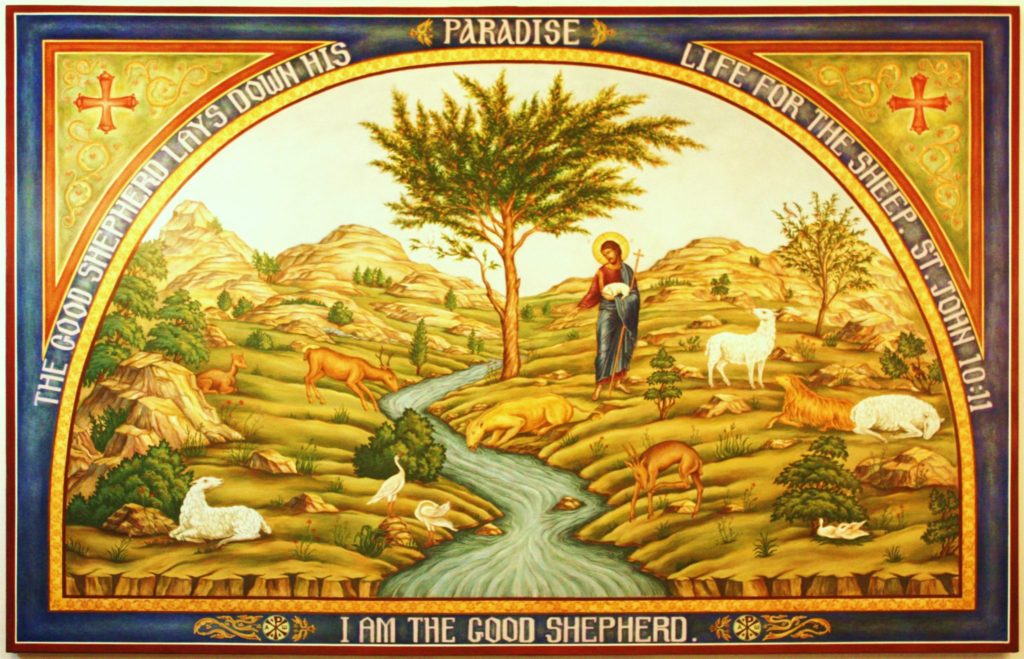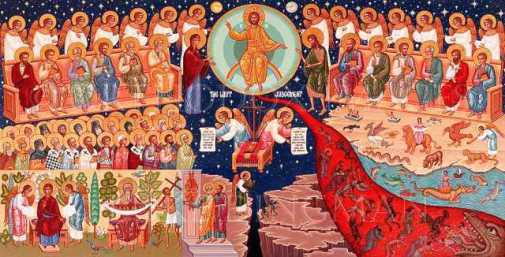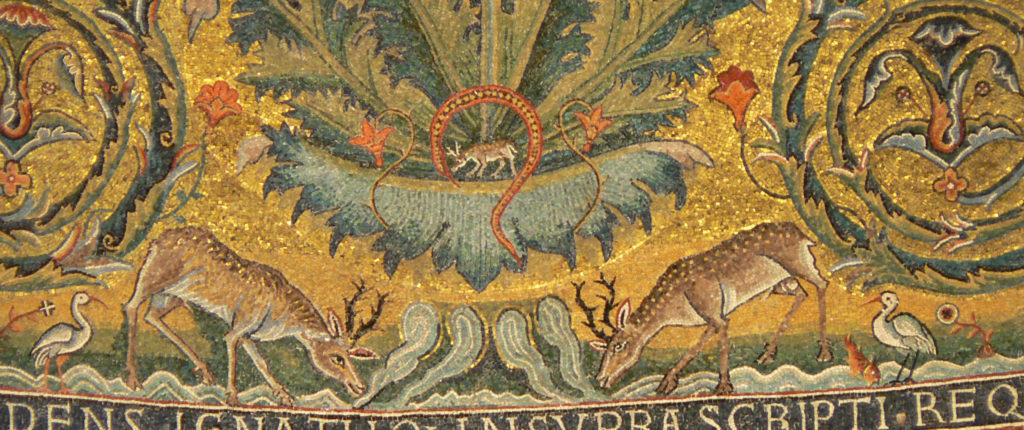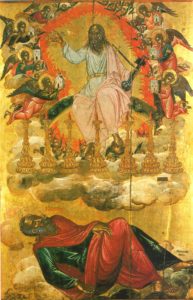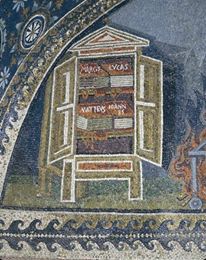Wednesday of Pentecost Week
Listen to an audio podcast of this commentary at https://www.spreaker.com/user/youngfaithradio/matt1wed
After the Holy Spirit descends at Pentecost, the Church immediately gives us our marching orders, in the words of the Lord at His Sermon on the Mount, so that we will put to work the grace we have received. Today’s section of the Sermon is Matthew 5:20-26.
The Lord said to His disciples, For I say unto you, That except your righteousness shall exceed the righteousness of the scribes and Pharisees, ye shall in no case enter into the kingdom of heaven. Ye have heard that it was said by them of old time, Thou shalt not kill; and whosoever shall kill shall be in danger of the judgment: But I say unto you, That whosoever is angry with his brother without a cause shall be in danger of the judgment: and whosoever shall say to his brother, Raca, shall be in danger of the council: but whosoever shall say, Thou fool, shall be in danger of hell fire. Therefore if thou bring thy gift to the altar, and there rememberest that thy brother hath ought against thee; Leave there thy gift before the altar, and go thy way; first be reconciled to thy brother, and then come and offer thy gift. Agree with thine adversary quickly, whiles thou art in the way with him; lest at any time the adversary deliver thee to the judge, and the judge deliver thee to the officer, and thou be cast into prison. Verily I say unto thee, Thou shalt by no means come out thence, till thou hast paid the uttermost farthing.
St. Theophan the Recluse explains what it means for our righteousness to exceed that of the scribes and the Pharisees:
Characteristic of the scribes is knowledge of the law without concern for life according to the law. Characteristic of the Pharisees is correctness of outward behavior without particular concern for correctness of thoughts and feelings in the heart. Both attitudes are condemned to remain outside the Kingdom of Heaven. Let everyone receive the lesson he needs from this. If you want to learn the Gospel law, do so – but in a way that enables you to establish your life according to this knowledge. Try to be correct in your behavior, but keep your inner feelings and dispositions correct at the same time. If you have gained some knowledge, do not stop there, but go further and understand the demands such knowledge makes of you – then act appropriately. Let your behavior show that your feelings and dispositions are not the result of externals, but that your external behavior proceeds from your feelings and dispositions, and actually expresses them. If you establish yourself this way, you will be higher than the scribes and Pharisees, and the doors of the Kingdom will not be closed to you. – Thoughts for Each Day of the Year, p. 120
The interior life has become foreign territory for most people, including Orthodox Christians. Busyness is the order of the day. If we are not at work, or getting trained to do some kind of technical or business job unrelated to humane (much less spiritual) concerns, or running around doing errands, we are distracting ourselves with social or entertainment media. The mind, made to dwell within the heart, gets broken up and scattered over a thousand concerns, and the heart languishes in hard dryness, locked away in a dark place and ignored.
St. Isaac the Syrian, on the other hand, says that stillness is the mystery of the age to come. By stillness, of course, he does not mean mere inactivity, laziness, and not using the gifts God gave us. He means that we must center our lives within, with the mind in the heart, and live from there. Then, whether “in the body or out of the body,” we will be living for the Lord, and we will become the true and lasting selves God means us to be. When the time comes for the soul to leave the body, the transition will be “painless, blameless, and peaceful,” as we pray in every Vespers, Matins, and Divine Liturgy.
To live in this way, we must take both negative and positive steps. The negative steps include turning off electronic devices except for strictly planned and structured use, and cutting out unnecessary busyness and idle talk. The positive steps include being faithful to daily prayer and spiritual reading, learning the Jesus Prayer from the right sources and doing it, frequent confession, and frequent Holy Communion with attentive preparation. It is really a simple program when you think about it.
I recall a visit we made a few years ago to a women’s monastery in Greece. The elderly nun who came to the reception room to greet us sat down and looked at us, with a slight smile and twinkling eyes, for several minutes, before she said anything. She was at peace within herself and gave us credit for being so as well. There was no rush. It was the deeper courtesy born of profound respect for what it means for us to be alive, to be human, and to be God’s children.
The people in charge of worldly affairs today would like for us not to think or pray at all, but simply be robotic cogs in this vast, lifeless, and boring contraption they are constructing to replace human society. I suppose that when they have figured out a way for the actual robots to do everything, they plan to do away with us altogether. The most fundamental counter-revolutionary act we can perform to sabotage this anti-human takeover is to do the most human thing possible: to go within ourselves and pray with the mind in the heart. All of our outward resistance must flow from this.

